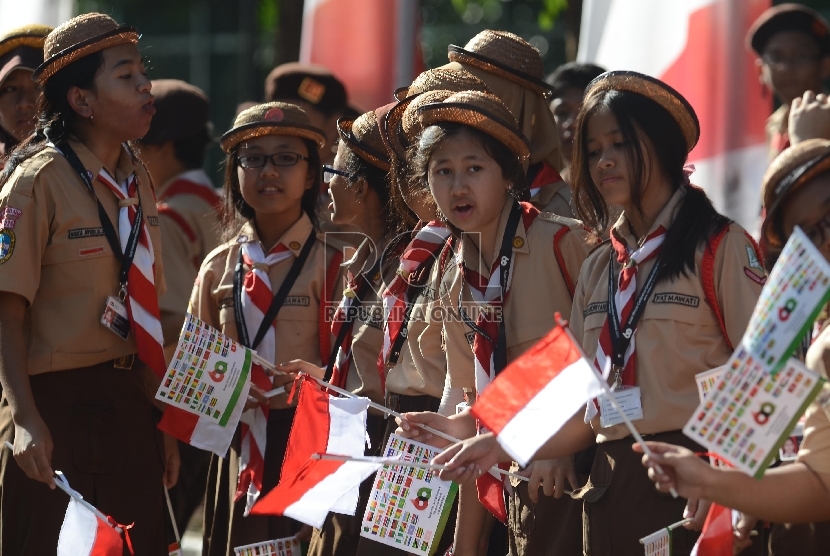REPUBLIKA.CO.ID, JAKARTA -- The Asia Africa Ministerial Meeting (AAMM) held on Monday considers the Dasasila Bandung (Ten Principles of Bandung) as still relevant to address a wide range of current challenges, Indonesian Foreign Minister Retno L.P. Marsudi stated.
"At the meeting, the ministers came up with several ideas stressing that Dasasila Bandung is still relevant to address the current challenges," she stated while conveying the outcome of the AAMM during the Asian-African Summit at the Jakarta Convention Center on Wednesday (22/4).
She noted that the AAMM participants are of the view that Dasasila Bandung has served as an inspiration for Asian and African countries to strengthen South-South Cooperation in a bid to achieve peace, stability, and prosperity.
Indian Ambassador to Indonesia Gurjit Singh affirmed that Dasasila Bandung is a good solution to prevent and thwart conflicts among countries in the Asian and African regions.
"From India's viewpoint, I believe the best contribution of the AAC 1955 is the Dasasila Bandung. When you read Dasasila, it is really the main guide to preventing conflicts among (Asian-African) countries," he stated.
Singh emphasized that Dasasila Bandung is the biggest contribution of the AAC held for the first time in 1955.
He believed that if Asian-African countries put Dasasila Bandung into practice, the conflicts among countries can be resolved quickly and even prevented.
Therefore, he highlighted the need to revive the values of Dasasila Bandung as it provides solutions to the Asian-African countries to overcome conflicts.
Dasasila Bandung is the result of the AAC 1955. It is a political statement containing the basic principles in a bid to promote peace and cooperation in the world.
The 10 principles of Dasasila Bandung are:
1. Respect for fundamental human rights and for the purposes and principles of the Charter of the United Nations.
2. Respect for the sovereignty and territorial integrity of all nations.
3. Recognition of the equality of all races and nations large and small.
4. Abstention from intervention or interference in the internal affairs of another country.
5. Respect for the right of each nation to defend itself singly or collectively, in conformity with the Charter of the United Nations.
6. Abstention from the use of arrangements of collective defense to serve the particular interests of any of the big powers, abstention by any country from exerting pressure on other countries.
7. Refraining from acts or threats of aggression or the use of force against the territorial integrity or political independence of any country.
8. Settlement of all international disputes through peaceful means, such as negotiation, conciliation, arbitration, or judicial settlement as well as other peaceful means of the parties' own choice in conformity with the Charter of the United Nations.
9. Promotion of mutual interests and cooperation.
10. Respect for justice and international obligation.


